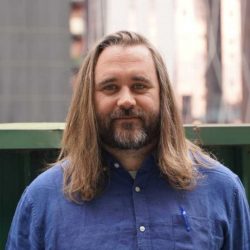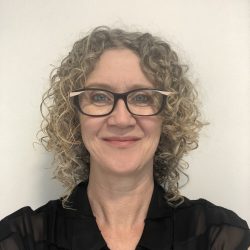This project will collect qualitative data after the transformation of the Upper Stony Creek, to better understand how urban greening projects impact resident perceptions of wellbeing, especially in disadvantaged areas with a lack of greenspace.
Project Summary
This project builds on our previous research to understand the impact and benefits of naturalisation and transformation of the Upper Stony Creek (2017-2020) in Sunshine North, a socio-economically disadvantaged and culturally diverse area in Melbourne’s west.
Access and proximity to nature and surrounding environments are critical determinants of health and wellbeing in contemporary cities adapting to climate change and recovering from the COVID-19 pandemic.
Greater amounts and functionality of urban green spaces mitigate climate change effects and provide a wide range of environmental benefits that reduce urban heating and enhance human health and wellbeing. However, inequity, disadvantage and diversity are rarely considered in urban greening research and policy.
This project will interview residents near Upper Stony Creek in Sunshine North to better understand their perspectives and experiences of the benefits provided by urban greening, and the impact of greening on their physical and mental health, wellbeing and connection to nature. The project will provide post-transformation evidence about the impact of efforts to improve and create quality of greenspace in culturally diverse neighbourhoods with inequitable access to greenspace.

Background
Proximity to natural environments is an important determinant of long-term health outcomes but knowledge is currently lacking on the influence of urban greening on the health and wellbeing of diverse residents. Residents living in areas of disadvantage face deprivation amplification due to a lack of access to health promoting environments which further compound social and economic disadvantage and poorer health outcomes. The negative outcomes from a reduced access to healthy environments has been exacerbated by the COVID-19 pandemic and the resulting restrictions confining residents to their homes and local neighbourhoods.
Although it is widely understood that the western suburbs of Melbourne lack access to green and natural environments, there is a critical need for new knowledge about areas of socio-economic disadvantage, especially those such as Sunshine North that have limited green infrastructure, existing heat vulnerability, environmental injustice and exposure to contaminated land.
This knowledge can be used to support advocacy, influence policy development and action, and increased understanding about the benefits of urban greening initiatives and how it can address inequity in health and access to greenspaces and build the capacity of residents to adapt to climate change and any future pandemics.

Research and Scope
This study will revisit residents of Upper Stony Creek to collect post-transformation data on their self-evaluated health and wellbeing. Approximately 20 residents who participated in the pre-transformation phase of this research will be interviewed to establish whether the transformation has had any marked effect on their perceptions of personal and community wellbeing.
Another 20 interviews will be sought to gather the perspectives of culturally and linguistically diverse communities, who were under-represented in the first phase of the research.
Outcomes and Impact
Continuing to partner with Greening the West, the findings will be used to maximise future greening initiatives for disadvantaged communities, and the evidence distributed to link urban greening to health and liveability. It will also aim to support government and non-government actors in climate change adaptation and public health planning across Victoria.
Funding
This project is funded by the Lord Mayor’s Charitable Foundation.
Collaborating Organisations and Partners
- Lord Mayor’s Charitable Foundation
- Greening the West
- Brimbank City Council
- Melbourne Water
- Greater Western Water
Further Information
If you want to know more about this project or have any questions, please contact Dr David Kelly via david.kelly2@rmit.edu.au




